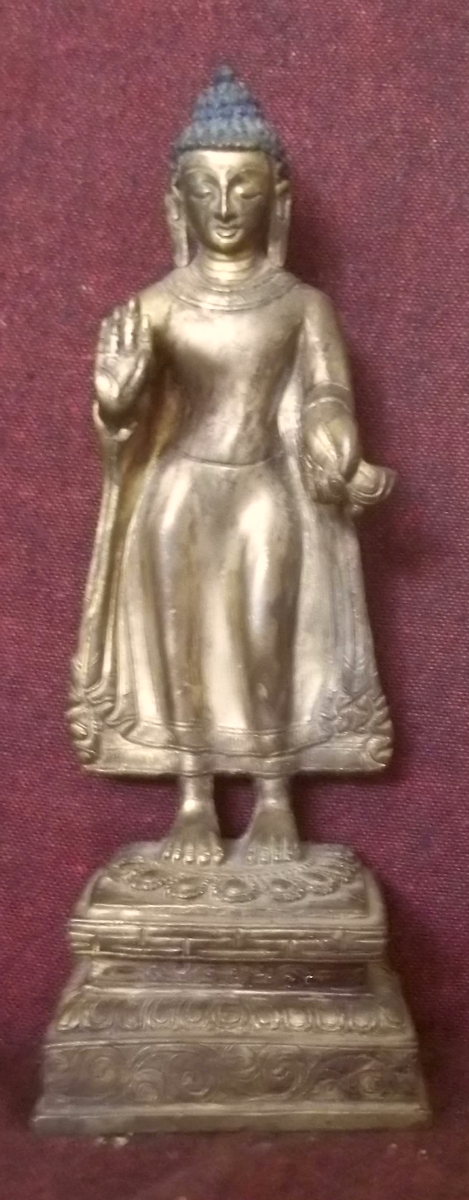
(Nepalese image)
No Ifs, Ands, or Buts, June 17, 2019
 |
|
| Abhaya, Peace, Protection, Dispelling of fear (Nepalese image) |
|
| When tragedy hits close to home
In our interconnected world nearly anyything can have a personal connection. Ryan Hall April 30, 2019 Going forward, I pray that the people of Sri Lanka and all those affected by violence can find their own inner nonviolence to continue to build a society that they've been working on for 10 years after their civil war. Having spent time there, I know what a beautiful country and what beautiful people they all are. They will rise from this and maybe teach all of us the deeper message of that Easter Sunday, new life and hope will have the final say. READ MORE wagingnonviolence.org/cnv/2019/04/when-tragedy-hits-close-to-home/ |
|
The attacks meant the end of many people's plans to visit Sri Lanka after governments around the world issued travel warnings and advisories. The tourism industry is reeling. We couldn't argue with our friends' changing their itinerary and going instead to India, but we're certainly disappointed. We had to be sorry, but relieved, that our plans to hold an Oxfam Hunger Banquet in late May had stalled, because it would have had to be cancelled. We wonder whether we will ever succeed in holding our charity event?
As terror attacks go, the Easter blasts weren't the biggest in the world, but they were extremely well-coordinated and organized, and, for a few days, received intense coverage in the international media. Of course, we are living in an incredibly violent world, with more undeclared wars than you can shake a stick at. How did we get here? This article, from last year, by Tom Engelhardt, gives some useful background on US state terrorism, which shows no signs of slowing down.
| Click to read the article. www.thenation.com/article/a-new-map-shows-the-alarming-spread-of-the-us-war-on-terror/ | |
The map, created by The Costs of War Project, which this article highlights, is the first map ever to vividly illustrate the extent of the so-called war on terror. It offers an astounding vision of Washington's wars across the globe: their spread, the deployment of U.S. forces, the expanding missions to train foreign counter-terrorist forces, the American bases that make them possible, the drone and other air strikes that are essential to them, and the U.S. combat troops helping to fight them. As the article explains, these activities now involve 76 countries, 39% of the world's total.
That article from last year is still relevant. Today, however, another global issue is the ubiquitous rise of militant nationalism, a.k.a fascism. Correspondingly, the bigotry; the racism; the othering of peoples of color, immigrants, Dalits, and tribals; and, particularly, Islamaphobia are also thriving. Spread by ignorance, fear, and rumor, these evils are inciting hatred and violence against the most vulnerable.
Here is an insightful and well-written article from The Daily Mirror, of Sri Lanka;
| Click to read the article. www.dailymirror.lk/opinion/Global-Islamophobia-and-its-Lankan-agents/172-167761 | |
Islamophobia has taken an interesting twist in Burma. The Burmese military government, which has been pursuing a concerted program of genocide against the Muslim Rohingyas in Arakan State, has issued a warrant for the arrest of the infamous "monk" Wirathu, who, for some years, has been stoking that hate-filled anti-Muslim fever throughout the country. Several weeks ago, Wirathu, who has been so useful to the military in their campaign against Burma's Muslims, criticized Aung San Suu Kyi, claiming that she has hindered the military's attacks on Muslims and has secretly supported a Muslim agenda. In that the former democratic advocate and Nobel Peace Prize Laureate is the figurehead who gives the ostensibly civilian government legitimacy, such public criticism cannot be allowed, and Wirathu has been charged with sedition. The government, however, claims that Wirathu is missing, even though he himself has announced, "I'm in Yangon. I am not hiding. They can come arrest me. I'm not afraid of prison." His supporters have staged mass rallies, even at Shwedagon Pagoda, one of the most sacred sites in the country, to protest the arrest warrant.
Meanwhile, proving her Islamophobia and the absurdity of Wirathu's claim, Aung San Suu Kyi further blackened her reputation on a recent visit to Europe where she bonded with Victor Orban, the right-wing nationalist leader of Hungary, himself a notorious xenophobe and authoritarian. For at least five years, ASSK has claimed that Islam is an existential threat to Burma's Buddhist culture, and she has been consistent in blaming the Muslim victims of genocide in Arakan for themselves being responsible for the "climate of fear." By being non-Buddhists of South Asian origin, they are different, other, and "threatening." A statement released by the Hungarian government declared:

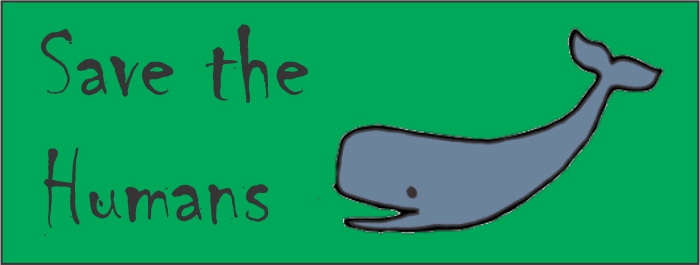 This depressing news comes with the background which we have discussed so much in previous reports--climate catastrophe, environment degradation, and species extinctions. Everyday, we read reports that these disasters are increasing at alarming rates. Recent calls have urged that the motto, "Save the Earth," be changed to "Save the Humans." Certainly, no matter how we violate and abuse her, the planet will continue. Nature, in one form or another, may also survive, but is it too late to prevent human extinction? We wonder how long we have until the world becomes unfit for human habitation?
This depressing news comes with the background which we have discussed so much in previous reports--climate catastrophe, environment degradation, and species extinctions. Everyday, we read reports that these disasters are increasing at alarming rates. Recent calls have urged that the motto, "Save the Earth," be changed to "Save the Humans." Certainly, no matter how we violate and abuse her, the planet will continue. Nature, in one form or another, may also survive, but is it too late to prevent human extinction? We wonder how long we have until the world becomes unfit for human habitation?
Right now, as America's fake president and his war-criminal-infested administration beat the drums of war with Iran, peace takes on a new urgency. As Buddhists, we want to look to the Dhamma, the Buddha's teaching, to find wise and compassionate answers; worthy reactions; and suitable and wholesome ways to practice, to act and to speak kindly and effectively as varous Doomsdays threaten, to speak out, and to act without giving up to useless and debilitating despair.
|
Avoid evil, do good, and purify your mind; this is the teaching of all Buddhas. --Dhammapada 183 |
I undertake the training rule of abstaining from taking life. |
|||||||
|
All tremble at violence; life is dear to all. Putting oneself in the place of another, one should not kill nor cause another to kill. --Dhammapada 130 |
The Noble Eightfold Path: Rright view, Right thought, Right speech, Right action, Right livelihood, Right effort, Right mindfulness, and Right concentration. |
|||||||
|
"Monks, a lay follower should not engage in five types of business. Which five? Business in weapons, business in human beings, business in meat, business in intoxicants, and business in poison." |
||||||||
These are the most basic teachings of the Buddha. They are the ideal to which all Buddhists should aspire. Granted, we ordinary people are far from the ideal, but no one, particularly Buddhist monastics, should expound any theory or way of practice which goes against these teachings. In fact, when viewed carefully, these teachings provide a guide to wholesome practice leading to the preservation of life, human, animal, and vegetable, in this world of ours. When interpreted loosely and followed by "but," however, the results can be a threat to humanity and a betrayal of Buddhism itself.
Many people argue that the Buddha never explicitly "outlawed" war nor declared that taking up arms or becoming a soldier was wrong livelihood. Given, however that in war a soldier's primary duty is to kill the enemy, that his training is to prepare him to kill, that obviously, clearly, goes against the first precept. As for the officers or the drone operators who may not be directly involved in the fighting, are they not "causing another to kill"?
In one instance, initially reluctant to answer a soldier's question, for fear of upsetting the young man, the Buddha did at last explain that, if a soldier, intent on killing or believing that he would be rewarded by a heavenly rebirth for striving to kill the enemy, were to be killed in battle, he would be reborn either in hell or as an animal. Doesn't that mean that being a soldier is wrong livelihood?
Furthermore, "trading in weapons" means earning money from weapons. Manufacturing and selling weapons is wrong livelihood. Using a weapon for one's livelihood, as a soldier or hunter is of a piece. The same applies to the injunction regarding poisons. Trading in poisons, including pesticides, which are destructive to our environment, is wrong livelihood. By extension, using those poisons, whether in war or against living beings, however small, should also be seen in the same light.
We often hear, "No war has ever been fought in the name of Buddhism." Some extrapolate that Buddhists are pacifists and never fight. We wish this were true, but history tells a different story. Aside from Emperor Ashoka, who, after becoming Buddhist, eshewed war, innumerable kings fought as Buddhists: One need remember only the wars between Burma and Siam and the Sinhalese and the Chola to realize how false this is. More recent violations of this principle are the speeches by militant monks in Burma (Myanmar) and Sri Lanka calling for the "ethnic cleansing" of Muslims.
It is, nevertheless, true that the Buddha himself consistently propounded peace and non-violence in every situation. In the Jatakas, there are the shining examples of Temiya, MahaSilava, and Mahosadha. In the last of these three stories, the wise counselor repeatedly demonstrated how creative thinking could effectively deter aggression and prevail.
Unfortunately, an ordinary person's first response, which is accepted as normal, to aggression is more violence. Is it instinctive to reach for a weapon when feeling threatened? Isn't that the very reason why Buddha taught the precepts as "training rules" requiring mindfulness, reflection, and continued practice. It is instructive to remember the Khantivada Jataka, in which the inebriated king became furious when he awakend from a drunken stupor to find that his dancing girls were listening to an ascetic, the Bodhisatta. When the ascetic said that he was practicing patience, the enraged king ordered his executioner to amputate the ascetic's limbs one by one. Despite the pain, the ascetic spoke not a word in anger, saying that his patience was not exhausted.
The Bodhisatta had been working on perfecting patience and developing wisdom for innumerable lifetimes before rebirth as Mahosadha. Without Mahosadha's skill, ingenuity, and wisdom, avoiding a violent, bloody response to provocation is extremely difficult. Still, even though it requires great forbearance and a commitment to non-harming, it is not impossible, and it should be seen as the ideal.
In 2014, Ven. Bhikkhu Bodhi wrote a troubling essay for The Inquiring Mind entitled "War and Peace: A Buddhist Perspective" in which he posits a Buddhist justification for war under certain circumstances. In that article, Ven. Bodhi admits that: "... the Buddha propounded an ethic of harmlessness that rejected violence in all its forms, from its collective manifestation in armed conflict to its subtle stirrings as anger and ill will. He rested this ethic on the appeal to empathy, the ability to imagine oneself in the place of others." Then he recites several of the teachings we've already cited above and concludes, "The practitioner is advised to develop a mind of lovingkindness toward all beings, like a mother toward her only child (Snp 149)."
The next paragraph begins with the dreaded "But," and he asks, "What happens to our commitment to harmlessness when the evil of war seems necessary to deter a greater and more destructive evil?"
He further states: "In time of war, I would argue, the karmic framework can justify enlisting in the military and serving as a combatant, providing one sincerely believes the reason for fighting is to disable a dangerous aggressor and protect one's country and its citizens. ...When the motive is genuine national defense or to prevent a rogue nation from disrupting global peace, moral evaluation would have to reflect these intentions."
Instead of adhering to a universal commitment to non-violence, this position leaves the question of "evil" to an individual's interpretation, whether that individual be the soldier himself or the government. Isn't it the human mind's natural propensity to see itself as good, right, and justified? Don't all governments tend to claim that they are acting from noble and righteous motives?
Following publication of this essay, there ensue a lengthy exchange of letters between Ven Thanissaro and Ven. Bodhi. With thorough, thoughtful, and persuasive arguments, Ven. Thanissaro insists on adherence to the Buddha's teachings on non-violence. Ven. Bodhi staunchly defends his stance on situational morality, repeatedly claiming that "in the real world" the Buddha's teachings do not apply. At one point he states, "[The Buddha] must have been too much of a realist to have expected such ideals [non-harming, non-hatred and non-enmity] to be realizable in a world ravaged by greed for power and wealth, by prejudice and hatred, and by desire for revenge." This seems to be saying that the Buddha did not regard greed, hatred, and delusion as the forces which sustain samsara and to question the possibility of the radical change promised in liberation from those poisons.
For his sole example of a justifiable war, Ven. Bodhi uses World War II and the necessity for stopping Hitler in his quest for world domination. In point of fact, however, the Second World War was not that simple. As the foreign affairs columnist, Eric S. Margolis, describes it:
|
World War II was not a good and evil struggle between 'western democracies' and 'totalitarian powers,' as we are still wrongly taught. It was a world conflict over land and resources pitting the British Empire which controlled 25% of the entire globe, the French Empire, Dutch Empire, and Belgian Empire, and, later, the US imperium (Philippines, Pacific possessions, Central America), against the Italian and Japanese empires. The Soviet Union was an empire unto itself. |
|||
| Read more, www.huffpost.com/entry/four-pernicious-myths-of_b_865513 | |||
Germany had been humiliated by the treaty which ended World War I. Hitler felt justified in trying to reinstate Germany as a world power. Japan was trying to hold on to its colonies in Korea and China, as well as to take control of the European colonies in Asia, which she regarded as her natural sphere of influence. There was greed on all sides. To this extent, victory against Germany and Japan meant reaffirming Europe's domination of the "Third World." Ordinary soldiers on both sides may have believed that they were fighting and killing each other to stop aggression, to defend the homeland, to uphold an ideal, and to right a historical wrong. They had been trained to obey orders and to kill, believing they were right to do so. How tenuous it is to depend on an individual's "moral evaluation" as the basis for violating the first precept!
Ven Bodhi declares, "I am resolutely opposed to warfare as a means of settling differences and hold that conflicts between nations should always be resolved peacefully." But he claims that "conflicting moral dimensions" and "competing moral obligations" allow us to break the precepts. For Ven. Thanissaro, however, this is unacceptable: "The Buddha never allows for the idea that the precepts are valid only when no other 'obligation' conflicts with them. For instance, to say that there are times when it may be necessary to tell a lie to prevent harm, and that it's okay to do so, is to say that there are times when deliberate lies can be told without shame. But as the Buddha taught his son, 'When anyone feels no shame in telling a deliberate lie, there is no evil, I tell you, he will not do' (Majjhima 61)."
We urge you to read the entire exchange between these learned monks and to draw your own conclusions.
If, as Ven. Bodhi seems to agree, that a belief that your family, your country, and your way of life are being threatened is justification for violence against an aggressor, then uncountable groups around the world are justified in fighting against the force they see as a "rogue nation."
|
The Fallen of World War II from Neil Halloran on Vimeo. |
|
If World War II had been a just war, shouldn't it have solved something? Look at the world now! Did all those deaths contribute to making this world better? Better than what? It's a mess and we're probably doomed. One thing World War II did was to make future war more profitable, brutal, and destructive, by better enabling armies to devastate whole countries with increasingly toxic chemicals and powerful bombs. That's only referring to "conventional" weapons. What about the effects of a nuclear war? Doesn't the production, stockpiling, and sale of these massively profitable weapons mean that wars small and large become more and more likely?
The Buddha was not an academic, a logic chopper, exchanging views with other academics, debating issues and scoring points. The Buddha was a teacher--a creative, sensitive, and insightful teacher--motivated by compassion and a sense of urgency, never wasting precious time in academic speculation. He had the matchless advantage of being the Buddha, fully-Enlightened by his own efforts, remembering his past births, understanding his students by knowing their past connections and kamma, and knowing their futures as well.
Those of us who have had wonderful teachers growing up and who want to be good teachers ourselves must marvel at the Buddha's own teaching career. He walked into the jungle to reach Angulimala before he could commit matricide. He visited a farmer repeatedly to establish friendship in order to be able to console him when he lost his precious harvest to flooding. He once intentionally irritated a brahmin so that he could teach him an invaluable lesson. He walked to Alavi to teach the Weaver's Daughter because he knew that, having paid attention to him when he had earlier praised meditation on death and having practiced it on her own, she was ripe for insight. He knew that she was going to die in an accident and that she needed just a little nudge. He also knew that without his consolation, her father would be devastated.
The Buddha was motivated by unfathomable compassion and possessed infinite patience. He endured Devadatta's repeated efforts to supplant him. He didn't respond at all to Devadatta's ruthless attempts to kill him, and, in the end, Devadatta took refuge, and, as the Buddha foretold, will himself become a Pacceka Buddha.
Sometimes the Buddha's teaching does not even depend on words. In the Mahayana Flower Sutra, Maha Kasyapa's smile holds great significance. In a famous Zen story the finger pointing at the moon expresses more than a thousand words. It was with a simple gesture of loving-kindness that the Buddha tamed the tusker, Nalagiri.
The Buddha is the supreme Teacher of gods and men, so it is presumptuous to compare his teaching to our own convoluted thoughts, let alone to assert that he, after eons of striving and complete remembering, doesn't really know the real world. It is a dangerous delusion if we think that we can do it better by ourselves.
When we undertake the precepts and commit ourselves to the practice of non-violence, we may not know whether we will succeed or even what success would be, but, if we don't, we know that we will fail. If we sincerely endeavor to train ourselves in morality, we will be following the Buddha's path, with the promise that, in the end, we will not have intentionally harmed another sentient being who, like ourselves, loves life and does not want to die. Along the way, as unenlightened beings, we must realize that, mired as we are in greed, hatred, and delusion, we cannot trust our own minds to tell us what to do. As ignorance increases all around us in our sick and fevered world, we can only rely on the Buddha's light to illumine the darkness. He taught clearly, unequivocally, precisely, and compassionately: "Avoid evil, do good, purify your mind."
Granted, we have to walk the path by ourselves, but Buddhas clearly show the way. Not harming is fundamental--no ifs, ands, or buts.
Non-violence is also a way of protecting the environment. Certainly the degradation and destruction wrought by mankind's current way of life is violent toward nature. How bad is it?
In 2014 World Wildlife Fund announced that 50% of the earth's species of animals had become extinct in the last 40 years. The pace is rapidly accelerating, and we humans are the problem:
 |
|
| THE EXTINCTION CRISIS
Unlike past mass extinctions, caused by events like asteroid strikes, volcanic eruptions, and natural climate shifts, the current crisis is almost entirely caused by us--humans. In fact, 99 percent of currently threatened species are at risk from human activities, primarily those driving habitat loss, introduction of exotic species, and global warming. Because the rate of change in our biosphere is increasing, and because every species' extinction potentially leads to the extinction of others bound to that species in a complex ecological web, numbers of extinctions are likely to snowball in the coming decades as ecosystems unravel. Read more, www.biologicaldiversity.org/programs/biodiversity/elements_of_biodiversity/extinction_crisis/ |
|
It behooves us to see the loveableness of all beings, to recognize that each occupies its rightful place in nature, and to treat the earth and all of its inhabitants with care and compassion.
One could argue that the greatest cause for climate catastrophe and the destruction of the environment is predatory capitalism, which is driven by greed. In this regard, the Buddha taught a very clear message:
|
Bringing Tranquillity to the Land One day, the brahmin Kutadanta addressed the Blessed One: "Master Gotama, I have heard that you understand how to conduct the triple sacrifice successfully with its sixteen requisites. I want to make just such a big sacrifice, but I do not know how to do it. It would be good if Master Gotama would explain this to me." "Listen, Brahmin," the Buddha answered. "Pay proper attention, and I will explain." "Yes, Master Gotama," replied Kutadanta. "Brahmin," the Buddha continued, "long ago there was a very wealthy king called Mahavijita. One day, as this king was reflecting in private, the thought came to him: 'I have acquired extensive wealth, I occupy a wide extent of land which I have conquered. Let me now make a great sacrifice.' He called his spiritual advisor and asked, 'How can I make a great sacrifice which will be of lasting benefit to me and ensure my happiness?' "'Your Majesty,' the advisor replied, 'your country is beset by outlaws, who are ravaging villages and towns. The countryside is infested with brigands. It would not be right for Your Majesty to tax this region. Your Majesty might think, "I will get rid of this plague of robbers by executions and imprisonment, or by confiscation, threats, and banishment." In that way, however, the problem would not be properly resolved. Those who survived would later harm Your Majesty's realm. There is, however, a plan by which you can completely eliminate the lawlessness. To those in the kingdom who are engaged in cultivating crops, let Your Majesty distribute grain. To those who are raising cattle, give fodder. To those in trade, give capital. To those in government service, assign proper living wages. In this way, thievery will disappear, and Your Majesty's revenues will certainly increase.' "'So be it!' cried the king, and he did exactly as his advisor had suggested. As a result, all of his subjects became intent on their own occupations, and no one harmed the kingdom. Not only did thievery disappear and the king's revenues increase, but the land became tranquil, and the people, with joy in their hearts, playing with their children, dwelled in open houses." --Digha Nikaya 5, (A Pilgrim's Companion, Edited by Ken and Visakha) |
|||
A modern alternative to predatory capitalism is Buddhist economics as espoused in Small Is Beautiful by E. F. Schumacher, and several workss by Phra Payutto and Sulak Sivaraksa. These writers propose an economic system based on moderation and local consumption, while protecting the earth's resources.
One problem, which is an effect of climate change is food shortage. Many economists have proposed that one method of alleviating that problem is vegetarianism. According to scientists at the Stockholm International Water Institute (SIWI),:
|
About 20 percent of protein in human diets is currently animal-based, but, unless that drops to 5 percent by 2050, there won't be enough food to nourish the additional 2 billion people estimated to be alive by 2050. READ MORE www.huffpost.com/entry/vegetarian-water-food-shortage_n_1836273 |
|
Apart from the consideration of the environment, the issue of the brutality of factory farming takes us back to the whole issue of non-harming.
Let us remember the first precept and that trading in meat is one of the five kinds of wrong livelihood. One might ask, "If selling meat is prohibited, what is to be said of purchasing it for consumption?"
Ven. S. Dhammika discussed vegetarianisn at length on his blog in essays which he later incorporated into a book, To Eat or Not to Eat Meat.
Basing their practice on compassion, Mahayana Buddhists prescribe vegetarianism for all monastics, and many laypeople also adopt the practice. (This is still true in China, Korea, and Vietnam.) Most Theravada Buddhists, on the other hand, do not. Our passionately vegan friend David summarized the viewpoint of many in a recent exchange on Facebook:
| It just boggles my mind that monks can teach people that "may all living beings be free from harm and all causes of harm" and yet turn around and go have animal products for lunch. But when I question them, the answer is always the same. They tell me the Buddha ate meat, so it's OK for them. I just find it sad that monastics have such an opportunity to teach people about respecting all living beings and do not do that often enough. Firstly, of course, I think they need to lead by example. | ||
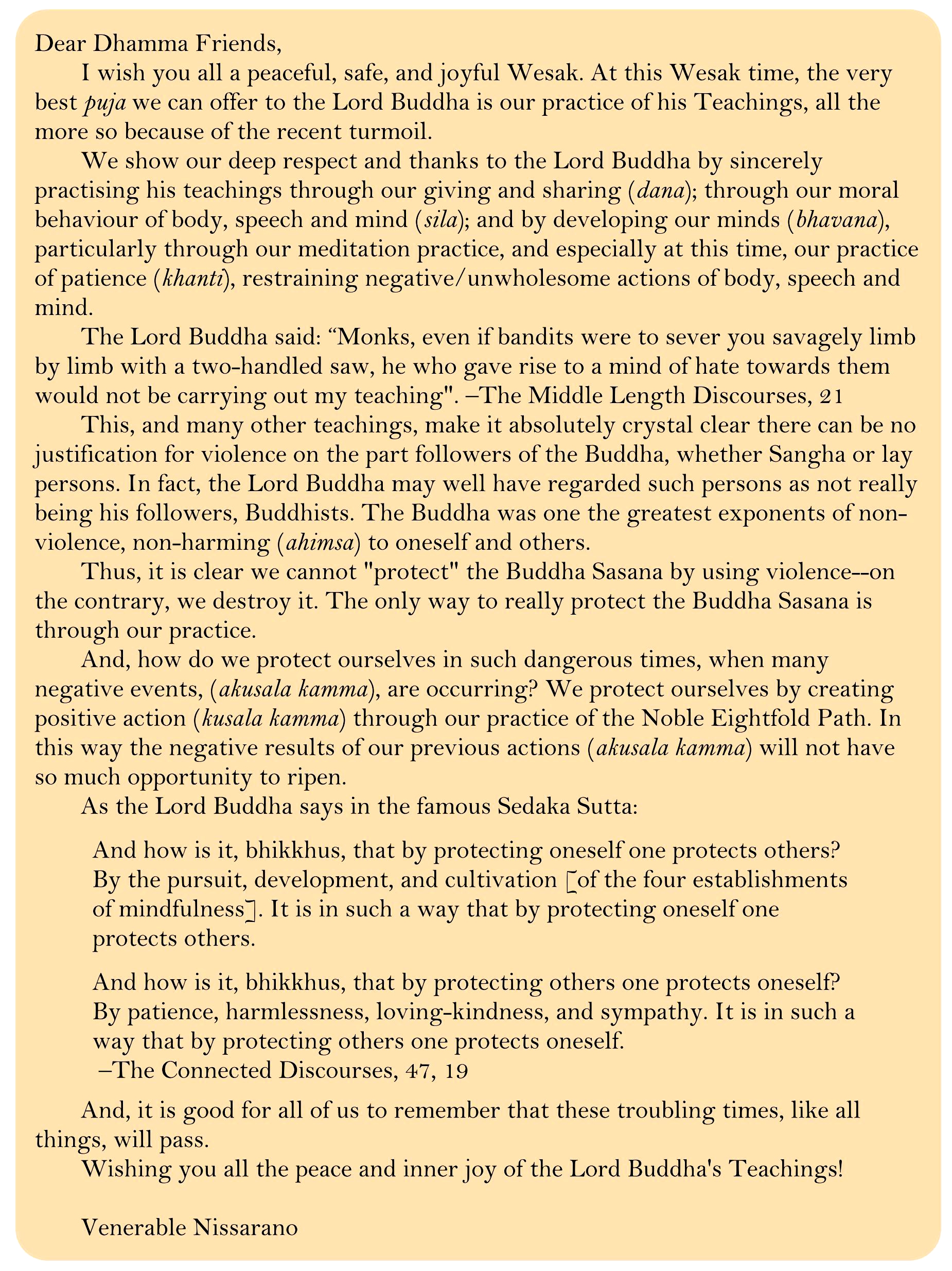 |
|
| Click to enlarge. | |
We will conclude this presentation with a perceptive essay by Christopher Titmuss, "The Buddha as Activist." Here is the opening paragraph:
|
The Buddhist traditions have tended towards a view of separation of the Buddha's teaching from society. Many have been led to believe that the Buddha declined to engage in any kind of social criticism, as one form of protest. Some Buddhists have the impression that the Buddha only created an order of monks and nuns outside of society without addressing the real issues of concern in society. The Pali texts show something quite different. READ MORE www.christophertitmussblog.org/the-buddha-as-activist |
|
![]()
|
Good News!
Buddhist Relief Mission has been able to initiate dana to the Sangha Ward of Kandy Hospital. |
|||||||||||||||||||||||
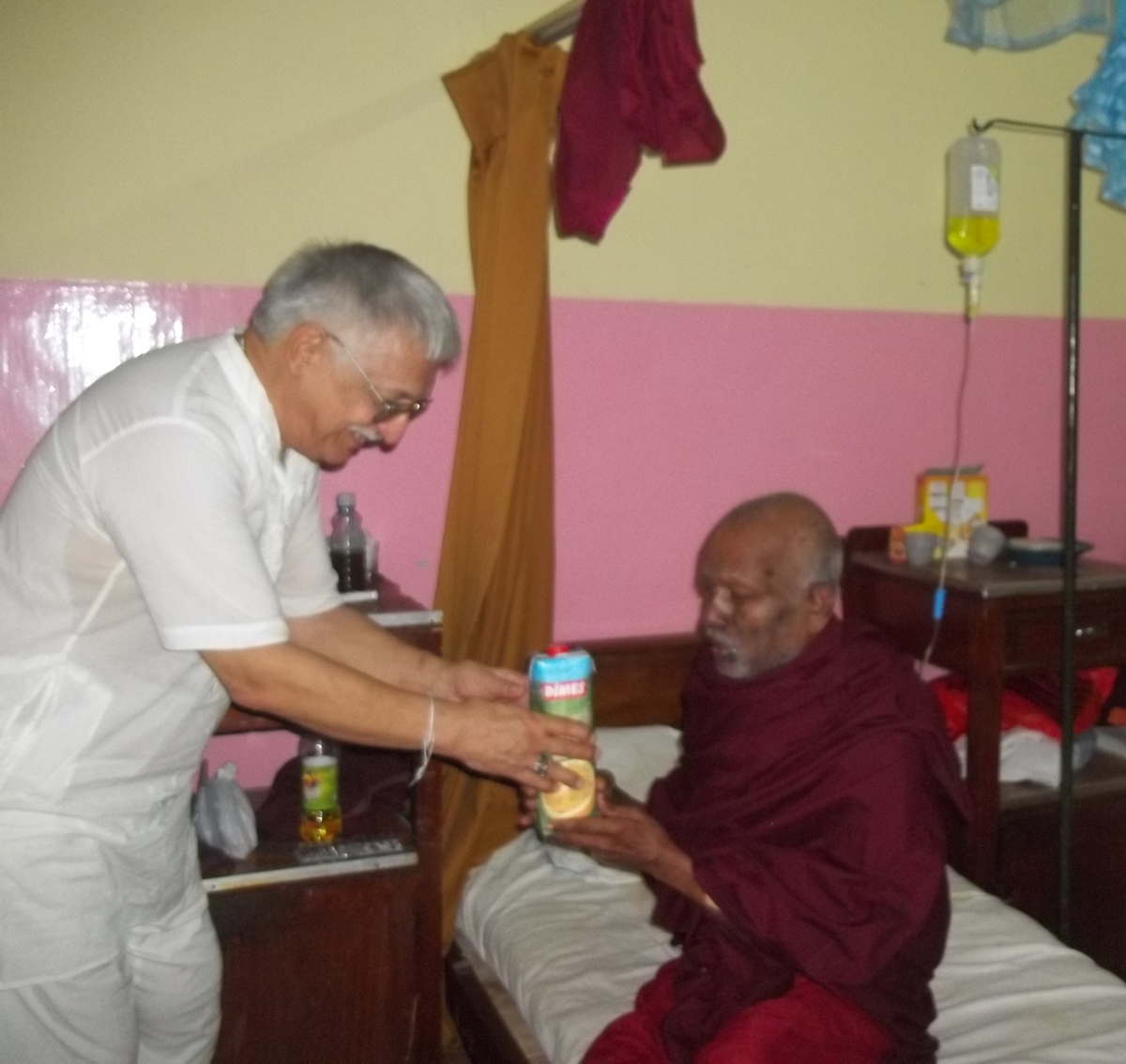 |
|||||||||||||||||||||||
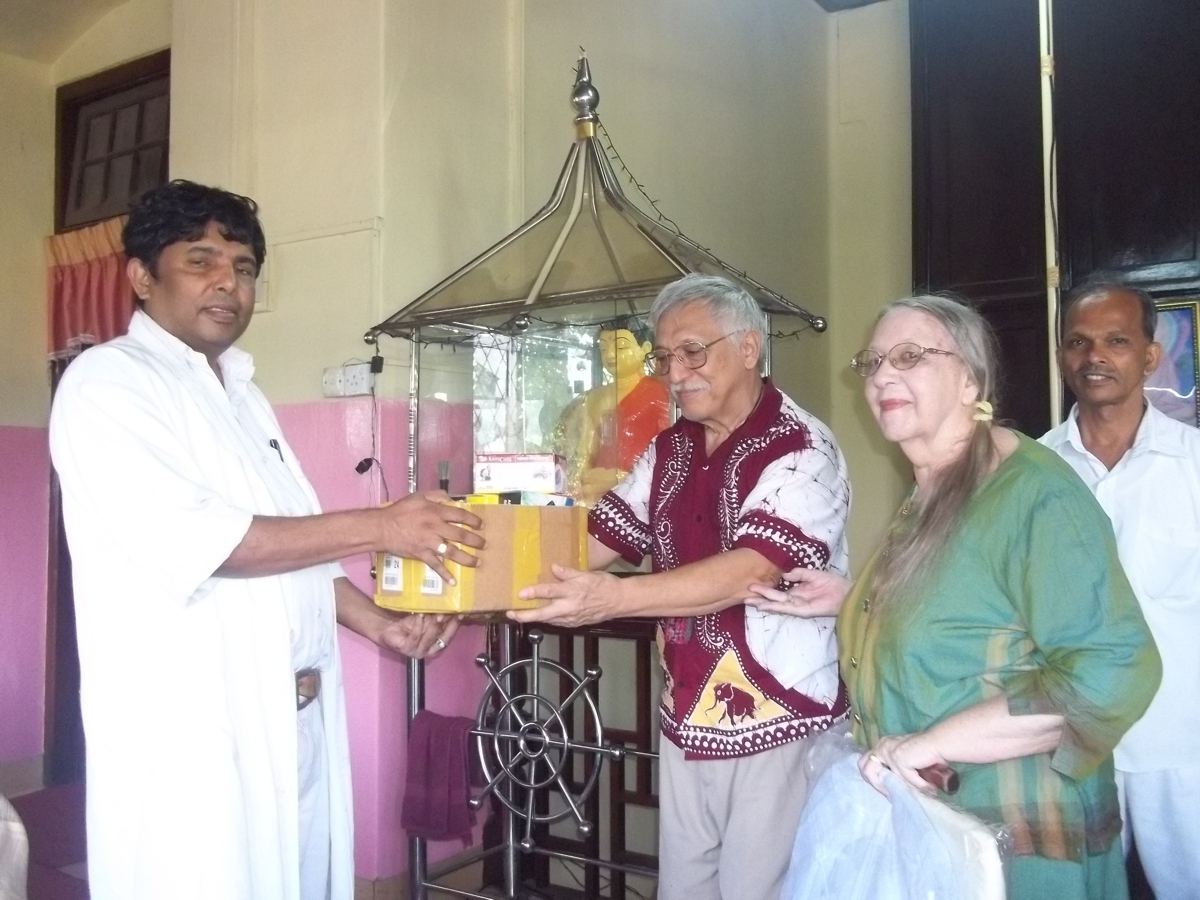 |
 |
 |
|||||||||||||||||||||
|
Click any photo to read a report of our activities in the Sangha Ward.
|
|
Click HERE to open a PDF file of many photos of the activities.
|
|||||||||||||||||||||
News from Prison |
|||||
| Steve has been moved from a prison in the Upper Peninsula of Michigan to one close to the Ohio and Indiana borders. Here is a recent letter. |  |
||||
| Greetings Ken & Visakha, I hope this email finds you in good health and with peacefulness of mind. For the most part, I enjoy both myself presently. I have been volunteering in the donation garden this past week. The vegetables are given to local food banks, and soup kitchens. There has been an awful lot of weeding and turning soil to be done. Some of the plant beds have had 10 times more weeds than vegetable plants! :-) My work has been more intellectual than physical for the past 6 years. This past week has been inwardly rewarding, yet physically taxing. I've certainly had no difficulty sleeping through the night. I thank you for the gift from you and your friends. It arrived in my account with no trouble at all. I already have someone in mind that I would like to help. He is about 62 years of age and is in the early stages of Parkinsons. As discreetly as I could be, I also learned that he has no help from outside, and because of his illness, unable to work an assignment. He does, however, have a talent for greeting card making. His supplies are running low and I believe it will only cost about $30 to get him on his way again. Ken, I am pleased to learn that you are no longer experiencing pain in your fingers. I hope you reach full functionality with them in short order. Our hands are second to our feet as the most used body part. At least you are in a country where medical treatment is so accessible. It's really wonderful news about your friend being diagnosed all clear of cancer. I was able to bring some of the altar pictures with me here. I passed out a couple of the altar pictures for them to place on their bulletin boards. I was not surprised that the photo of your home altar was the popular choice. The altar here lacks a Buddha statue. I spoke with Chaplain Hollingsworth about it. I explained that statues aren't permitted for personal practice, but have been allowed for group use. He said that he would contact his supervisor in Lansing to be certain. That's fair. I saw on the news earlier that Ohio suffered a couple tornados yesterday. I certainly hope your family and friends (or anyone really) didn't suffer because of them. The news reported that there have been 500 tornados in the United States the past month alone. Then there's the record flooding throughout the midwest. Yet President Trump says there's no such thing as global warming! :-( I bring this to a close now, dear friends. I look forward to hearing from you again when you have a moment or two. May you remain well, peaceful, and happy. With Metta, |
|||||
| This is the invitation to Calvin's group's annual event. Of course, we will not be able to attend, but we will be sending a parcel of food, such as sweets, fruit, or nuts, to complement their banquet. | |||||
|
We invite donations for assistance to Buddhist inmates in US prisons.
|
|||||
In our last report, Ken wrote that, after carpal tunnel surgery, the pain was gone and that numbness was limited to the ring finger. That quickly changed; the numbness spread to more fingers, and, although, after having the sutures removed, Ken could use his hand, every movement created severe and persistent pain. Ken consulted the surgeon and agreed to a second operation, this time, under general anaesthesia. This was necessary because the surgery would involve some investigation to discover why the condition had worsened.
On May 8, Ken was admitted to Kandy Hospital and given a bed in a very comfortable three-bed room. Visakha didn't go in with him because security was extremely strict and there was just no parking possible. Lily and Ashoka managed everything nicely, while Visakha guarded the three-wheeler. While Ken was getting settled, an older Muslim driver came out to get his tuk-tuk, saw Visakha, and asked if she was OK there. She assured him she was fine and they chatted about the current situation. He expressed sorrow about the blasts and the fears of his community, especially during the month of fasting Those who did it couldn't be Muslims any more than the man who'd killed all the worshippers in the mosque in New Zealand could be a real Christian--truly religious people don't do evil things! He was very concerned about Visakha's safety--like a brother. Ramadan Mubarak.
Ken's surgery was scheduled for the next morning, and he was taken to the operation theater, but, because there was a lengthy emergency procedure at that time, he was taken back to his room, and the surgery was performed the next day. There were no complications whatsoever. In fact, Ken woke up from the anaesthesia singing. He reported that he was very comfortable, despite the heatwave. The Kandy hospital was surprisingly cool, without air conditioning! It's an old building, but it is obviously well-designed to be so comfortable with only fans. The three nights in the hospital and the operation itself cost precisely nothing! We took a giant tub of vanilla ice-cream and several boxes of cookies for the nurses and orderlies when Ken was discharged. He could have gotten his meds free as well, but the line was long, so we went to our friendly pharmacy and bought them there.
Now, a month later, Ken can report that, this time, the pain is truly gone. Unfortunately, the fingers are still numb, but several doctors have assured him that they will wake up eventually, though it may take six months for the nerves to grow back. Ken is not sure, but he thinks that already the base of the ring finger is waking up. Hope springs eternal.
 |
 |
 |
|||||||||||||||||||||||||||||||||||||||
| On March 31, Manjula and two other members of the temple committee in Kuliyapitiya visited us for lunch with Lalitha, Dushy, and Ewen. We were pleased to learn that work progresses on the temple. We are also pleased that we have received donations for the temple. Click HERE to read about the temple in our last report. More donations are welcome. | |||||||||||||||||||||||||||||||||||||||||
| Many of the photos can be viewed larger with a click. | |||||||||||||||||||||||||||||||||||||||||
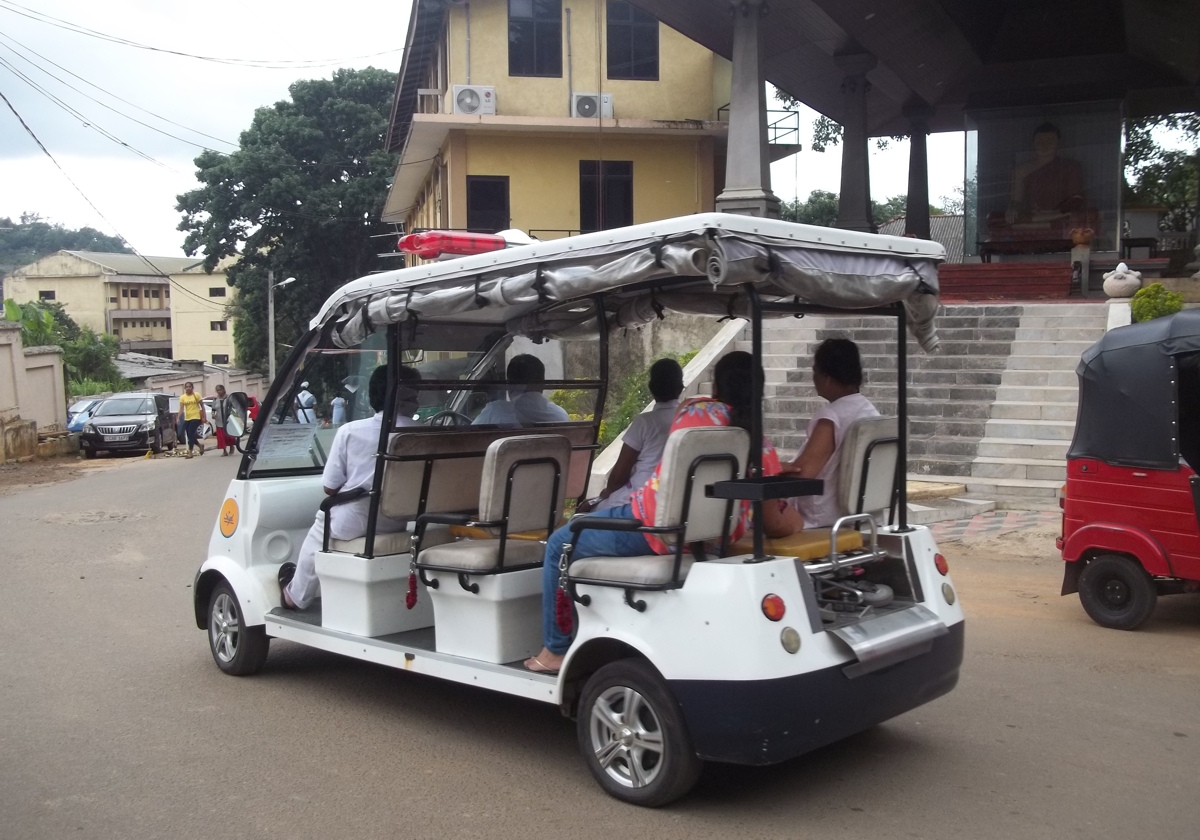 |
 |
 |
 |
||||||||||||||||||||||||||||||||||||||
| An electric vehicle, used for transport at Kandy Hospital | Ven. Thubten Tsundue completed her study at Root Institute and sent us these very cheerful photos from Thosamling Nunnery | ||||||||||||||||||||||||||||||||||||||||
 |
 |
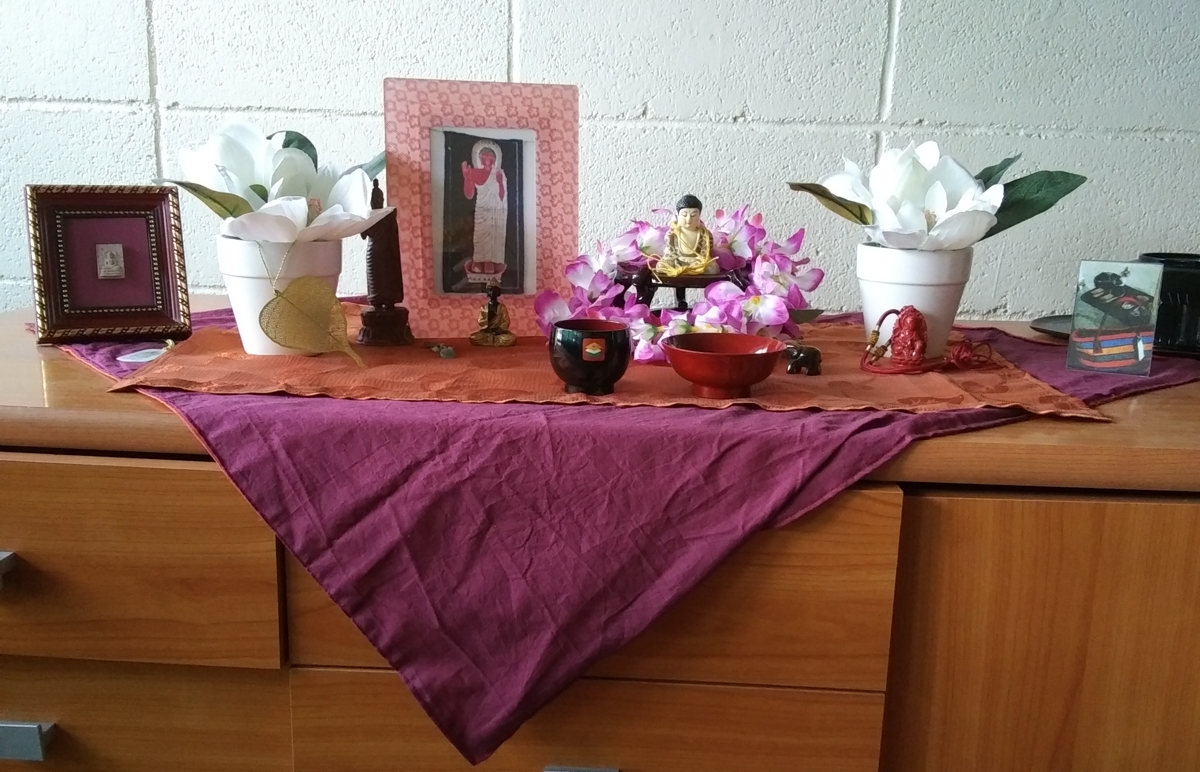 |
|||||||||||||||||||||||||||||||||||||||
|
Ven. Vimala Theri has returned to Hawaii. She sent us these lovely photos.
|
|||||||||||||||||||||||||||||||||||||||||
 |
 |
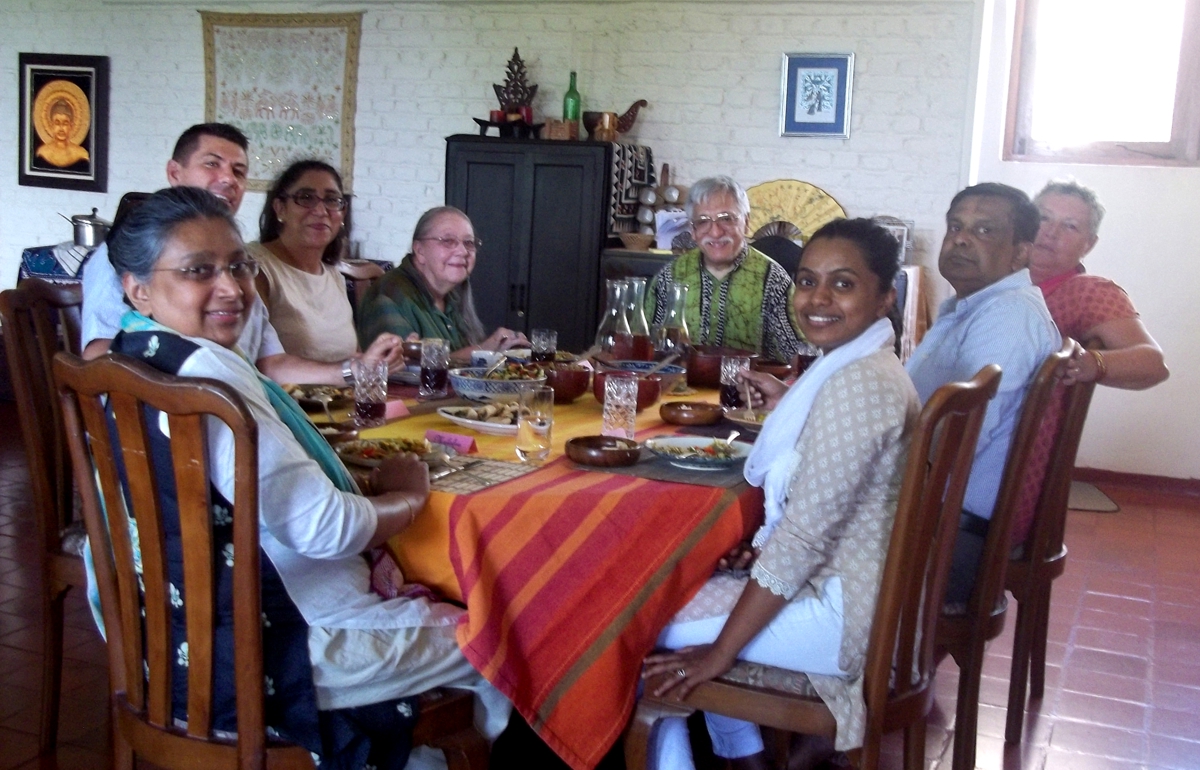 |
 |
||||||||||||||||||||||||||||||||||||||
| For years, we have had bad luck with tomatoes in our garden. In May, we found four perfectly formed beauties in the monkey cage! | At the end of March, Rushma and Mike brought her parents for lunch with Tania and Julia. | Lily has an new pet, which she rescued from Leo, who loves to play with living things. | |||||||||||||||||||||||||||||||||||||||
 |
On June 11, we found this insect on our roof terrace. We asked Dr. Jayanthi Edirisinghe, author of Insects, about it, and this was her reply
The picture is of a Leaf Insect, a cousin of the stick insect. What you have is a rare specimen being winged (Paired transparent wings laid over the body) as only the males bear wings and the females are wingless. Females are fairly common on trees. A brief account on leaf insects is given in my book - the last para on page 69. Unfortunately, even Roman could not capture a leaf insect on his camera. This was a comment made by the reviewer of the book too, Leaf insects are common on Guava trees where they often feed and breed. They are not uncommon but may be difficult to see on certain foliage as they are so well camouflaged. This particular leaf insect being a winged male is of much interest. It may have got blown over to the roof or may have even flown there! |
||||||||||||||||||||||||||||||||||||||||
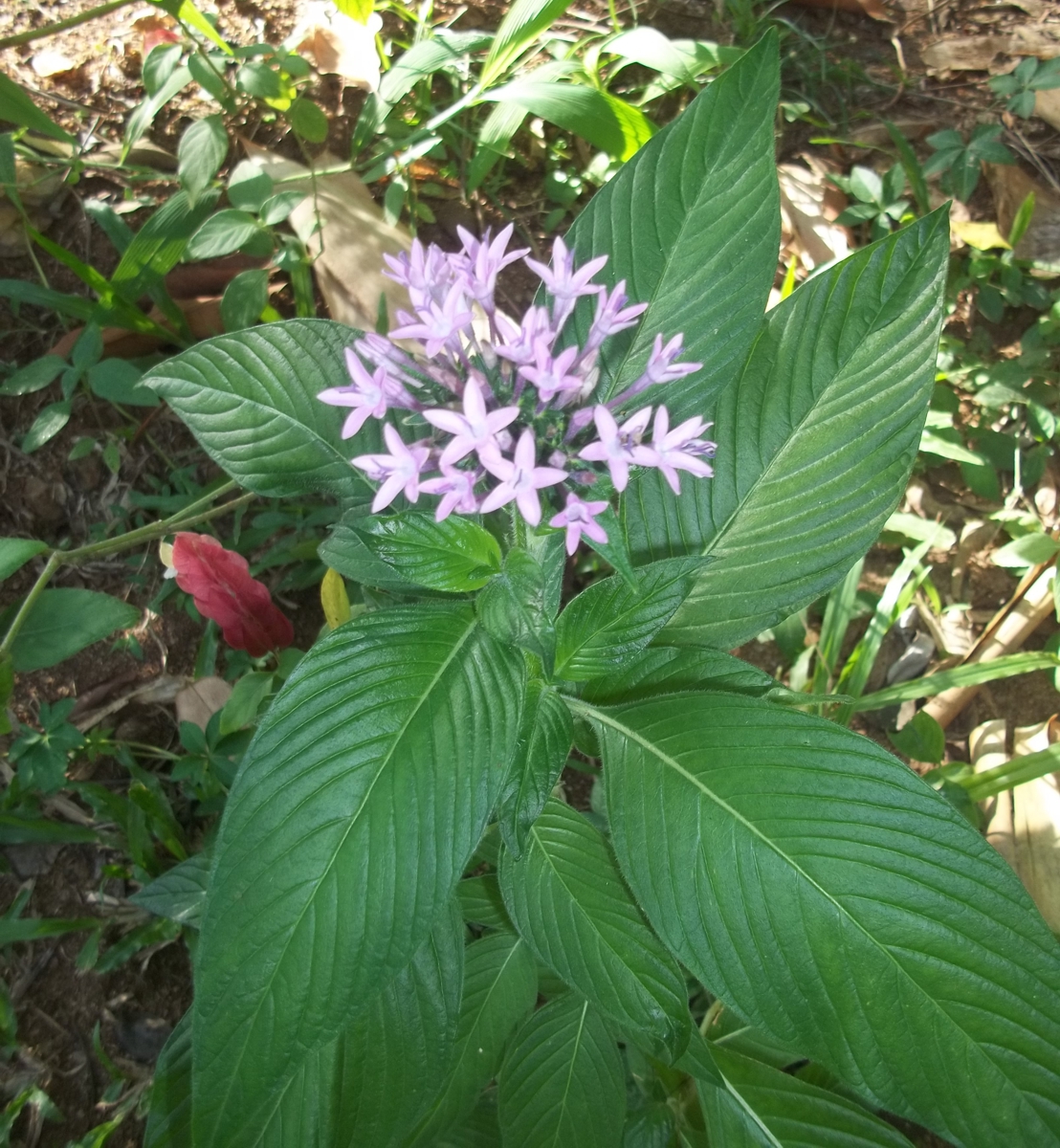 |
 |
 |
|||||||||||||||||||||||||||||||||||||||
| In March, this puppy was so small that she fit in your hand. Shehan wanted to name her Lily, but we persuaded him to choose Ren, which is Japanese for Lily. | |||||||||||||||||||||||||||||||||||||||||
|
Hidden in our garden
|
|||||||||||||||||||||||||||||||||||||||||
|
A beautiful spider's web in our courtyard
|
|||||||||||||||||||||||||||||||||||||||||
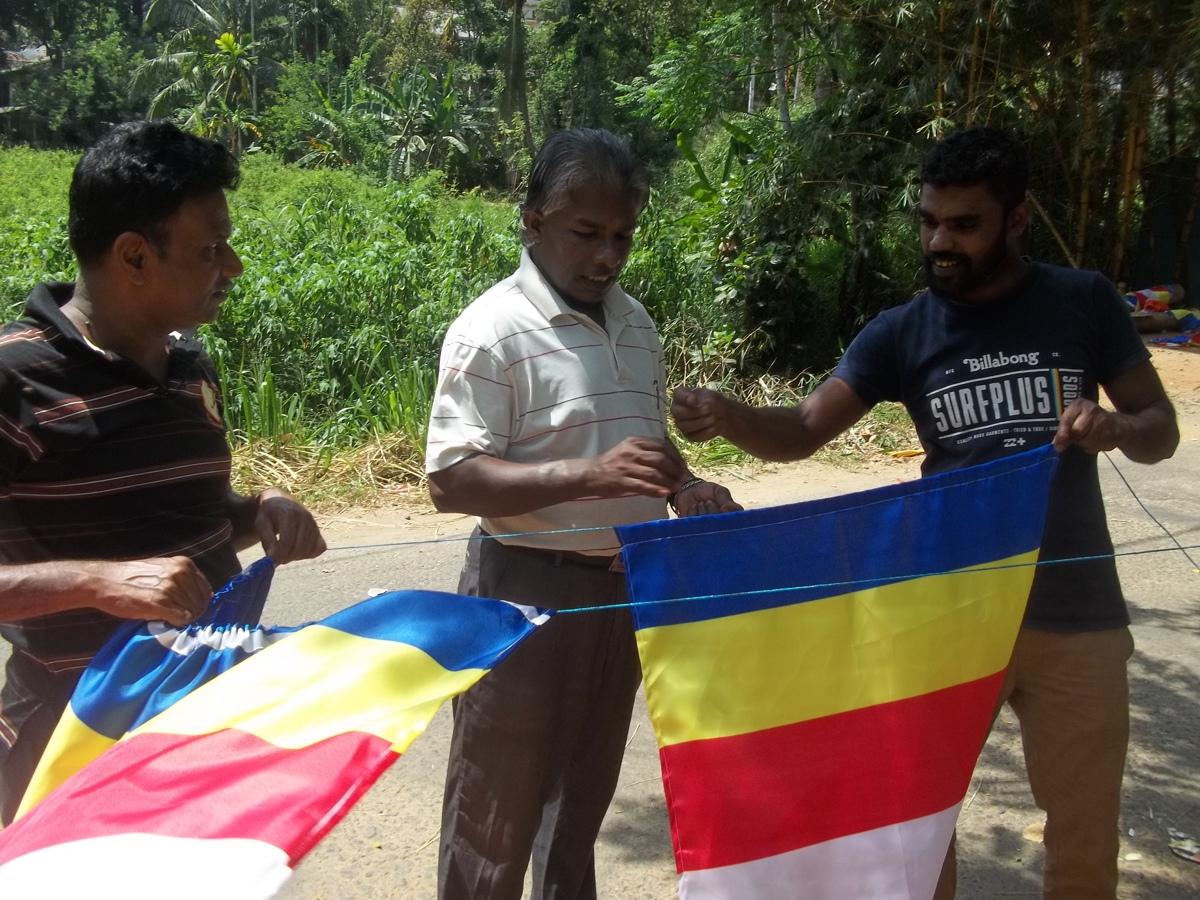 |
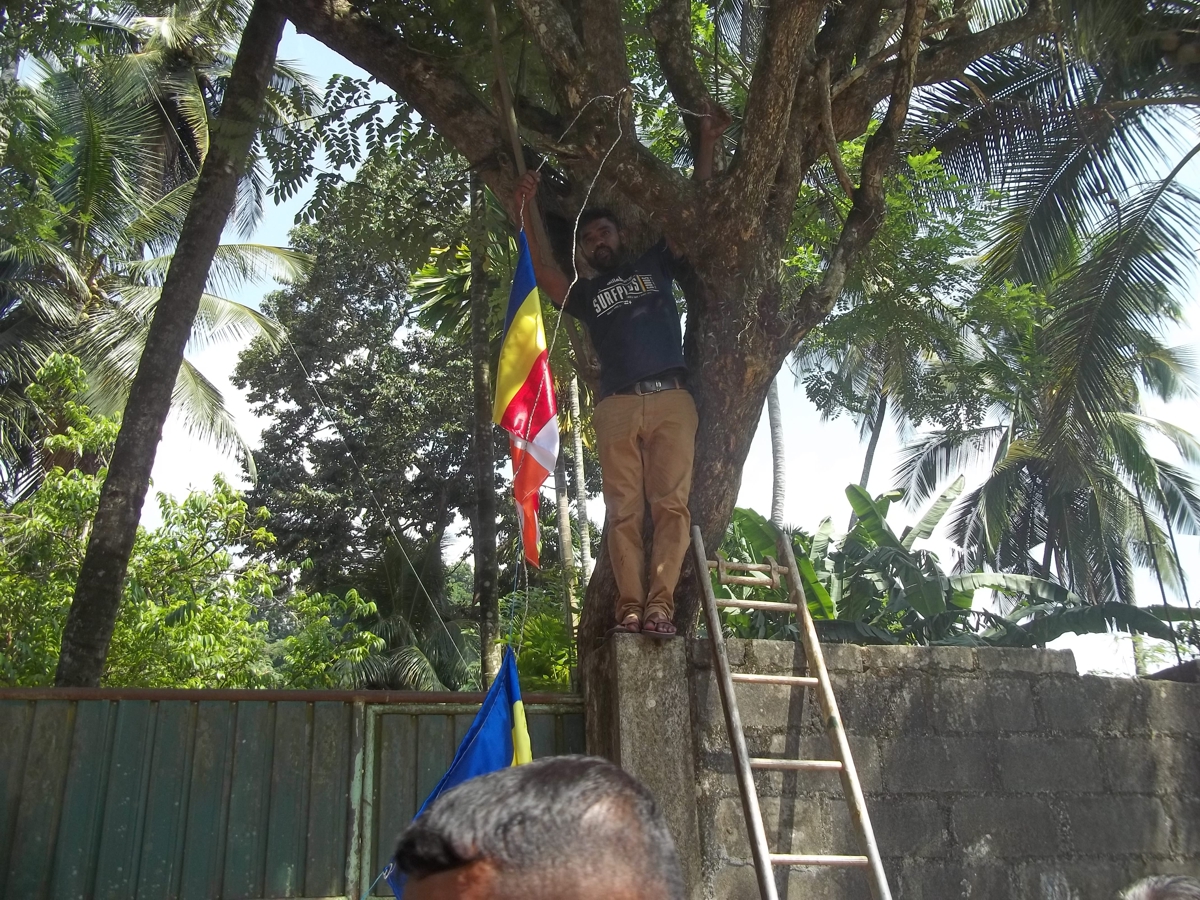 |
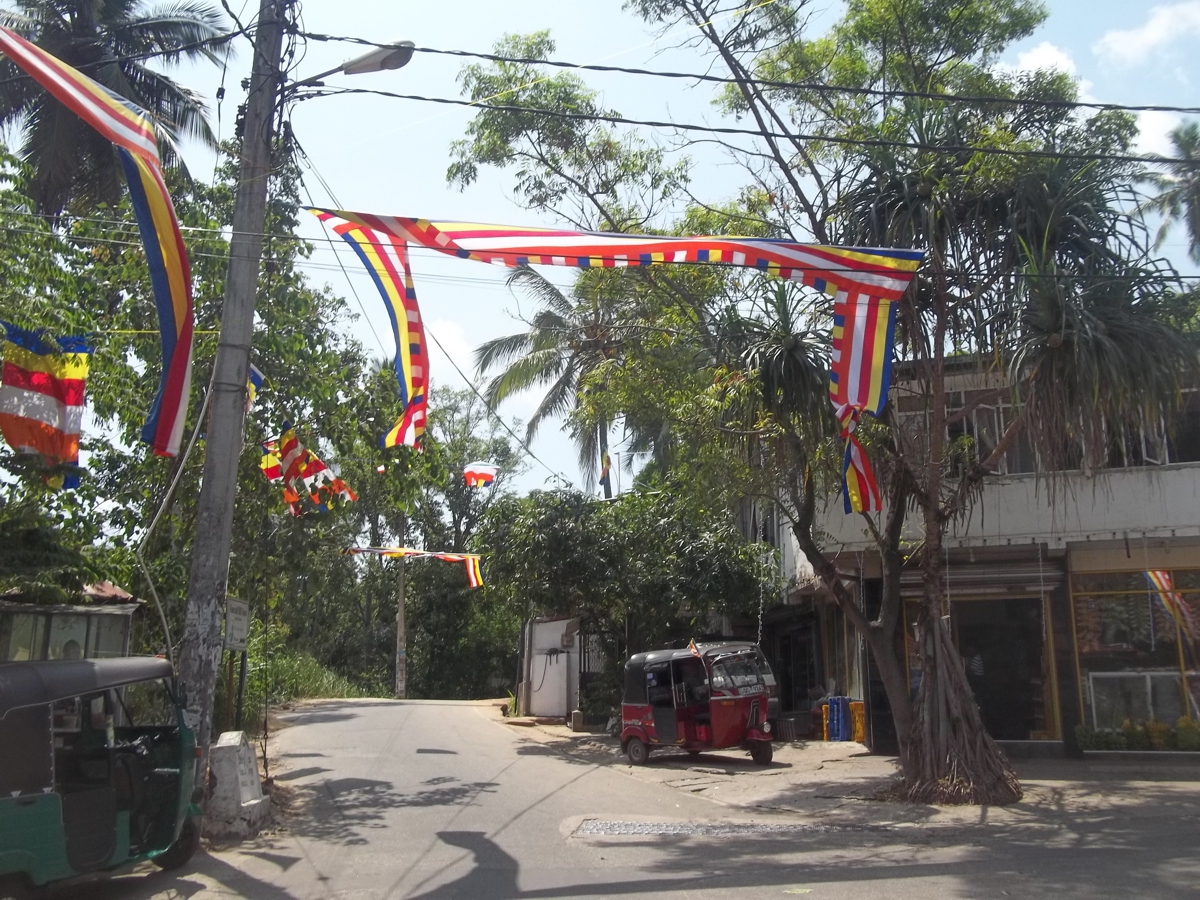 |
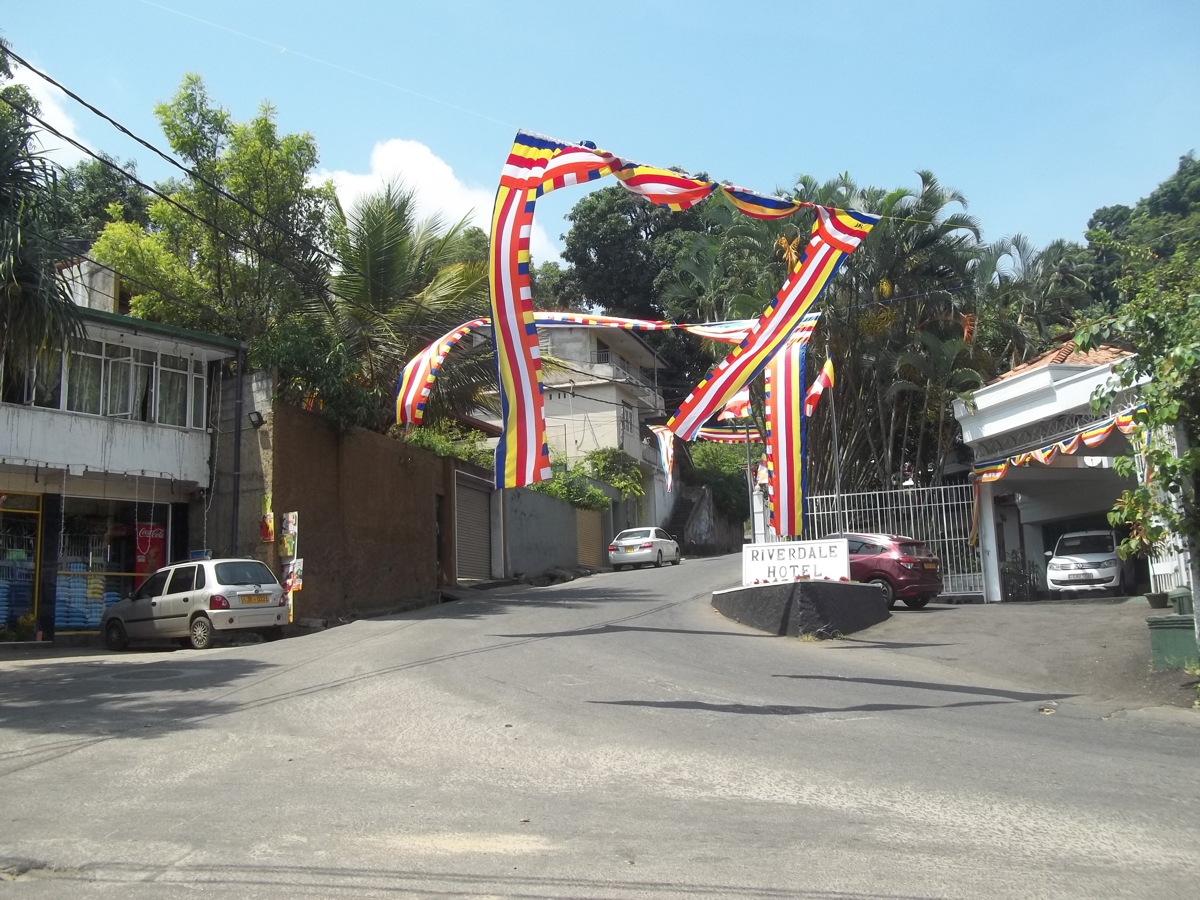 |
||||||||||||||||||||||||||||||||||||||
|
For Vesak, Ashoka's three-wheeler drivers' association in Anniwatte, many of whom are Hindu, Muslim, and Christian, in an expression of unity among all Sri Lankans, decorated the neighborhood streeets with Buddhist flags and banners.
|
|||||||||||||||||||||||||||||||||||||||||
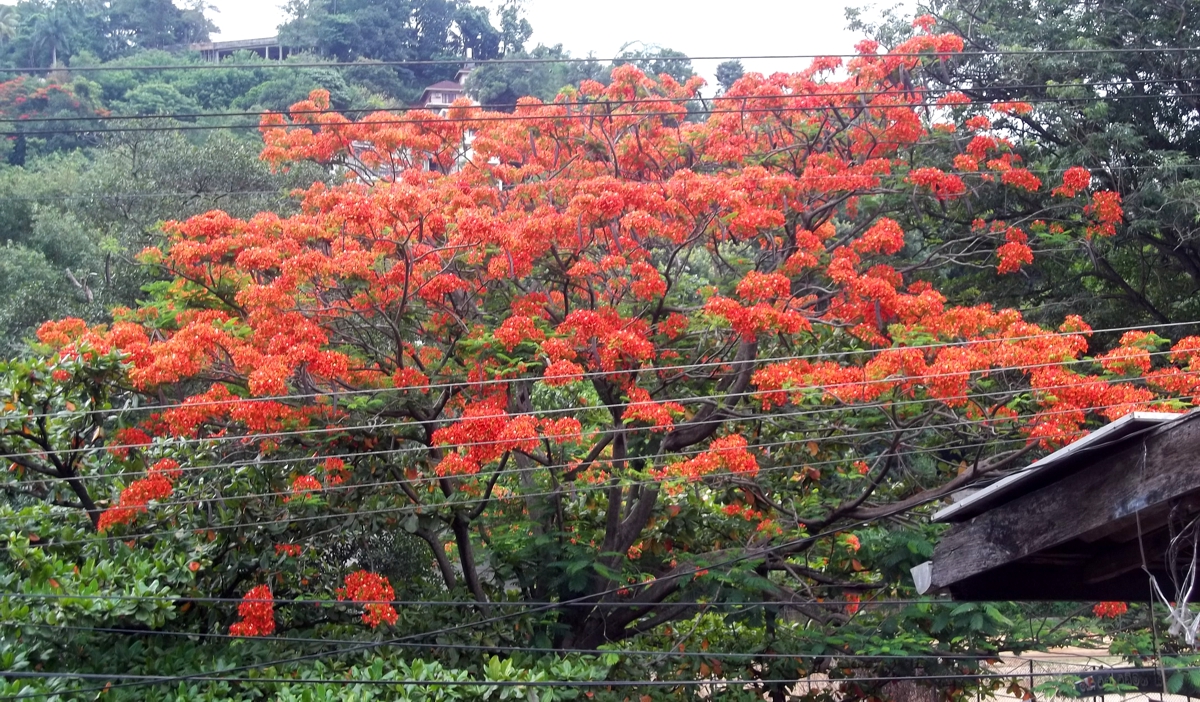 |
|||||||||||||||||||||||||||||||||||||||||
|
The flame trees all over the country were particularly splendid this year in May and June.
|
|||||||||||||||||||||||||||||||||||||||||